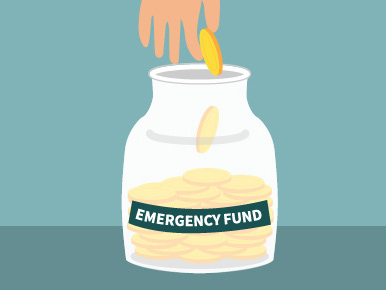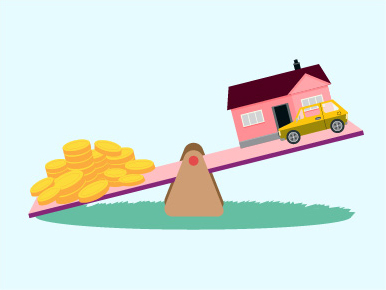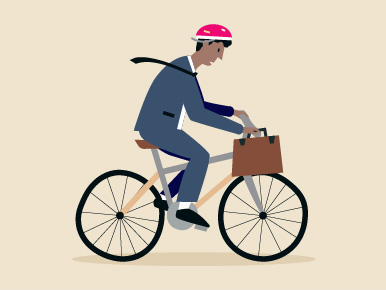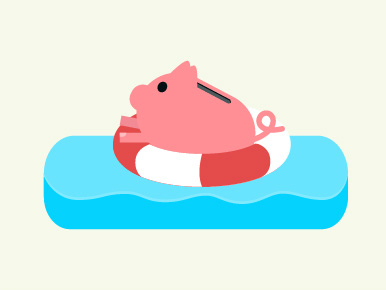With New Zealanders slowly coming out of their second nationwide lockdown, this year's Mental Health Awareness Week (27 September - 3 October 2021) couldn't have been timelier.
So, to help you make mental health a priority for the rest of the year and beyond, we collated some great tips from NZ's top insurers. And remember: happiness is a journey, not a destination. It's something to cultivate day by day - knowing that sometimes it's just okay not to feel okay.
Be here, now
Like to reimagine your wellbeing? Practising mindfulness and gratitude is a good place to start. You may have heard these concepts before: 'mindfulness' and 'gratitude' have become the goalposts of modern life, and a practical answer to our high-paced schedules.
With so much going on around us, it can be difficult to stay in the present moment, and this is what mindfulness is all about: taking notice and appreciating the positive things we have in our lives, the people who are important to us, and the challenges we've overcome to get here.
Check out these expert tips from Accuro to incorporate mindful wellbeing into different areas of your life: from your relationships through to your career and food choices.
Keep connected
Recent events have changed our lives on many different levels: who could have thought that we would spend so much time self-isolating at home? In times like these, it's all-the-more important to ensure that we stay connected with others in any way possible.
In this interesting article, Fidelity Life calls it "the science of smiles": according to research on longevity, strong friendships are good for our health and wellbeing, and might actually help us live longer.
Good friends are there through thick and thin, and can provide much-needed emotional support during tough times, while also helping us recharge and making us feel that we belong.
As Asteron suggests here, it's always a good time to reconnect with someone who is important to you, and perhaps you haven't seen or heard from in a while. Whether it's a face-to-face catch-up (if possible) or a phone call, text, or video conference - there are many ways to reach out to others these days.
Be kind (to yourself and others)
According to Psychology Today (cited by Accuro here), "being kind can strengthen your relationship and a sense of satisfaction in life."
Giving honest compliments, smiling to others, opening a door for someone, sending an email thanking a colleague or a friend - these are all acts of kindness, and if you think about it, there are countless opportunities to practise kindness in your daily life, including of course being kind to yourself.
Enjoy nature
Here in New Zealand, we're spoilt for choice when it comes to natural wonders. From scenic walks to seemingly endless beaches, pristine lakes and lush forests, our small island country boasts some of the most stunning landscapes in the world.
And the great outdoors might even be greater than you think. According to 2015 research by Stanford University, walking in nature could lead to a lower risk of depression. Researchers found that people who walked 90 minutes in a natural area showed far lower levels of brooding and obsessive worry than those who walked in a high-traffic urban setting.
In other words, nature does clear your head. Plus, as Accuro notes, it can also make you more creative, boost your focus, and charge your mind's batteries.
And there's another reason to spend time outside: getting into the sunshine is one of the nine mood-boosting activities that AIA recommends. Not only does sunlight help you produce vitamin D and regulate your sleep, but it may also increase serotonin, the chemical in the brain that's been linked to feelings of calm, positivity, and focus.
Stay active
"Mental wellbeing is closely connected to physical wellbeing, so if you can, keep active," recommends Asteron Life as part of their ideas to support your mental wellbeing.
We already talked about going for a walk in nature, but there are benefits to being active in any environment. Feeling physically well helps you feel mentally well, and it doesn't even need to be an intense workout at the gym.
As many people found during lockdown, even a quick stroll on the beach, a run around the neighbourhood, or a 15-minutes home workout with YouTube tutorials or fitness apps can go a long way in improving our overall wellbeing.
Take a break from social media
Social media plays a key role in keeping us together while staying apart. But studies also show that it can have a negative impact on our mental health, by contributing to feelings of perfectionism, body-negativity, and anxiety.
With other people's achievements being always on display, we may sometimes hold ourselves to unattainable standards. But what we see online isn't the whole picture: everyone has their own struggles that many people mask.
So rather than falling into the 'comparison trap' and aiming for perfection, why not strive for progress instead? As Accuro points out here, you can do so by reminding yourself of what's important to you, identifying areas of life where you're placing unhealthy expectations on yourself, and giving yourself credit when credit is due.
Protect your financial future
Studies have found over and over again that there's a clear link between financial health and overall wellbeing, including our sense of purpose and happiness in life.
With this in mind, taking out insurance is one of the key steps you can take to achieve peace of mind. By getting cover, and protecting your financial lifestyle and goals from the unexpected, you and your family can look to the future with confidence.
Not sure what you may need? Our quote compare tool is a great place to start, and don't forget our friendly LifeDirect insurance advisers are here to answer any questions you might have. Click here to send us a message, email us at team@lifedirect.co.nz or give us a call on 0800 800 400.
Disclaimer: Please note that the content provided in this article is intended as an overview and as general information only. While care is taken to ensure accuracy and reliability, the information provided is subject to continuous change and may not reflect current developments or address your situation. Before making any decisions based on the information provided in this article, please use your discretion and seek independent guidance.












